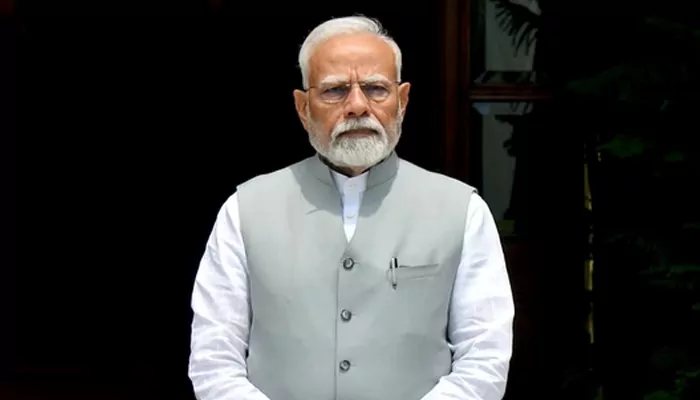Happy Birthday, Narendra Modi: Beyond India's Prime Minister - Exploring the 'Author' in Him
- Sayan Paul
- 5 months ago
- 3 minutes read

Have you read any of these books?
Narendra Modi’s journey as Prime Minister since 2014 is something we all know well. But how many of us know that he is also an author? Beyond leading the country, Modi has penned several books, sharing his thoughts on a wide range of subjects. Today, on his 75th birthday, let’s take a look at some of his most notable works and explore this lesser-known side of him.
Exam Warriors
When it comes to Narendra Modi’s books, Exam Warriors is perhaps the first that comes to mind. Published in 2018, the book is aimed at helping young students deal with the stress and pressures of exams while learning to succeed in life. Through personal anecdotes, Modi shares lessons on resilience, self-discipline, and the mindset needed to overcome challenges not just in academics, but in life as a whole. The book’s practical tips, motivational stories, and encouraging tone have made it hugely popular over time. It is available in 13 languages (including Assamese, Bengali, English, Gujarati, Hindi, Malayalam, Marathi, Odia, Kannada, Punjabi, Tamil, Telugu, and Urdu), and is distributed to government schools across India, inspiring millions of students.

Jyotipunj
Written in Gujarati in 2008 after Modi’s second victory in the Gujarat assembly elections, Jyotipunj profiles 16 RSS (Rashtriya Swayamsevak Sangh) leaders who played a pivotal role in shaping his political journey. Among these, the most detailed account is of M. S. Golwalkar, whom Modi refers to as Pujniya Shri Guruji (“Guru worthy of worship”). The book offers readers a rare glimpse into the mentors and guiding philosophies that influenced Modi’s leadership style and political vision.

Sakshi Bhaav
Sakshi Bhaav (The Witness State) is a collection of poems Modi wrote in his younger days. The work emphasizes observing life with detachment, maintaining inner calm, and finding balance amidst the chaos of the world. Through these simple verses, Modi reflects on his own journey, offering insights into how he intertwines spirituality with public life. Interestingly, the book originated from a diary Modi maintained at the age of 36. He once shared, “‘Sakshi Bhaav’ is a compilation of my samvaad with Jagad Janani Maa (Universal Mother Goddess). It connects the reader with me, allowing them to know me through my words, not only through newspapers.”

Setubandh
Setubandh, co-authored by Narendra Modi and Rajabhai Nene, is a heartfelt biography that delves into the life of Shri Laxmanrao Inamdar, affectionately known as Vakil Saheb. A revered RSS leader and Modi's mentor, Inamdar played a pivotal role in shaping the Prime Minister's early ideological foundations. The book, published in 2001, is a reflection of his influence on Modi's personal and political journey.
Inamdar's commitment to social harmony, his efforts in integrating diverse communities, and his unwavering dedication to nation-building are meticulously captured in Setubandh. Modi portrays Inamdar as a bridge-builder, connecting individuals across societal divides, much like the metaphorical 'Setu' (bridge) that unites people. This narrative serves as both a tribute and a source of inspiration, emphasizing the values of service and selfless leadership.

Setubandh is available in multiple languages, including Gujarati and Hindi, making it accessible to a broader audience.
Modi’s literary contributions also include Premtirth, Aankh Aa Dhanya Chhe, and more. Additionally, he has penned lyrics for two Gujarati garba songs - Garbo, sung by Dhvani Bhanushali and composed by Tanishk Bagchi, and Maadi, sung by Divya Kumar and composed by Meet Bros.












